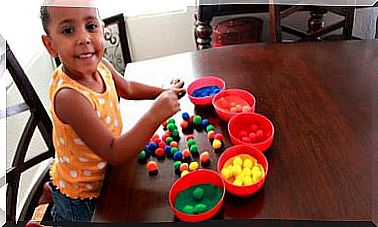How To Go To The Pediatrician Without Stress Or Nerves

It is not uncommon for parents and children to experience some anxiety when they have to go to the pediatrician. Whether it’s the first visit or the eleventh, even parents may not know exactly what to expect. Therefore, it is necessary to know how to go to the pediatrician without stress or nerves.
Sometimes a combination of factors influences the smoothness or difficulty of the visit. There are a few ways that a smoother visit can be ensured. But there are also other tricks that can be used to help relieve stress during and after the visit.
However, keep in mind that if your child has undergone an extreme medical procedure or if you believe he or she has had a medical trauma, consulting with a mental health professional is recommended, as this would be beyond the scope of this article.
Before the visit to the pediatrician
These recommendations must be taken into account before the visit:
- Choose the best pediatrician. You have to make sure you feel good about the person who gives you the information and guidance for your child’s health care. Doctors spend years training, but they are also human and can make mistakes.
- Have a good schedule. This may seem obvious, but it is necessary that you schedule your pediatrician’s visit time well and take into account your children’s schedules so that there is no stress or nerves. It is best to avoid feeding or napping times. When possible, try to schedule appointments for times when you know your child will be rested, not hungry, and in a good mood.

- Take a deep breath. Try to always stay calm, because your child can feel your anxiety. Even the way you hold it can show him how much tension is on your body. Keeping positive thoughts in mind while taking a few slow, deep breaths can help your pediatrician visit go smoothly and stress-free.
- Explain to your child why he is going to the doctor. Be honest with your child and let him know what the doctor will do. For example, you can tell him that you are going to the pediatrician to have his body checked and make sure he is healthy. Talking about vaccinations or drawing blood with little ones can be tricky. You have to use your intuition to be able to address their needs. You can say something like, “The nurse is going to prick your arm so we can make sure you are healthy. I will be there to help you ”.
- Use toys. If you use a doctor’s kit to play with your child, he will be able to familiarize himself with the procedures that will occur in the office: monitoring the heart rate, breathing, ears, mouth, etc.)
During the visit to the pediatrician, without stress or nerves
These tips are important to keep in mind during the visit:
- Stay present and in tune. Do your best to tune in to what your child may be experiencing, be it stress or fear. You will have to find a way to support him through that experience.
- Explain again. It is important to explain to the child what will happen and ask permission before you touch the body (all children should be aware of their rights, so they can tell someone to stop when necessary or when uncomfortable feel. It is possible May your child feel a lot of stress when he is in a new place or sees an unfamiliar face and is told that he needs to sit alone on a scale, so let him know what will happen.
- Reassure your child. This will be in the form of your body language, such as hugs and back rubs, along with your words and tone. Your child will need you to help him co-regulate, as he currently depends on you to calm his anxiety.
- Take their concerns into account. It can be easy to feel that the medical professional’s words carry more weight than your thoughts or opinions, but remember: they are human too. You are your child’s biggest advocate, so you have to make sure to ask questions and voice your concerns, even if you are afraid it will sound “silly.” Most decisions don’t have to be made right away, so take a breath and take a moment to decide your next steps.

After the visit
The process will continue even after the doctor visit, especially if something new happened on the most recent visit.
- Support. Continue to help your child express the feelings he just had and remind him of the positive factors, such as that you have been there to help him.
- Validate. Validate the experience that your child expressed or continues to express, as he needs to know that his feelings are okay and that it is okay to be afraid or cry.
- Play. Your child can play once he gets home. If you tune in, you’ll see your cue to pull that doctor’s kit out or to let him use whatever toys he wants so he can show you what happened from his perspective. You will be surprised what the little ones end up showing you and how they heard your voice during those moments of anxiety.
The challenge of visiting the pediatrician without stress or nerves
As you have seen, there are many factors that can influence when it comes to feeling nervous and stressed when you go to the pediatrician. However, we encourage you to take these tips into account and apply them, together with your child, the next time you go to the doctor.










